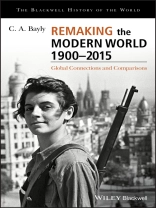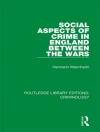The sequel and companion volume to C.A. Bayly’s ground-breaking The Birth of the Modern World, 1780-1914, this wide-ranging and sophisticated study explores global history since the First World War, offering a coherent, comparative overview of developments in politics, economics, and society at large.
* Written by one of the leading historians of his generation, an early intellectual leader in the study of World History
* Weaves a clear narrative history that explores the themes of politics, economics, social, cultural, and intellectual life throughout the long twentieth century
* Identifies the themes of state, capital, and communication as key drivers of change on a global scale in the last century, and explores the impact of those ideas
* Interrogates whether warfare was really the pre-eminent driving force of twentieth-century history, and what other ideas shaped the course of history in this period
* Explores the causes behind the resurgence of local conflict, rather than global-scale conflict, in the years since the turn of the millennium
* Delves into the narrative of inequality, a story that has shaped and been shaped by the events of the last hundred years
Part of The Blackwell History of the World Series
The goal of this ambitious series is to provide an accessible source of knowledge about the entire human past, for every curious person in every part of the world. It will comprise some two dozen volumes, of which some provide synoptic views of the history of particular regions while others consider the world as a whole during a particular period of time. The volumes are narrative in form, giving balanced attention to social and cultural history (in the broadest sense) as well as to institutional development and political change. Each provides a systematic account of a very large subject, but they are also both imaginative and interpretative. The Series is intended to be accessible to the widest possible readership, and the accessibility of its volumes is matched by the style of presentation and production.
Innehållsförteckning
List of Figures and Photo Credits vii
Series Editor’s Preface ix
Christopher Bayly and the Making of World History xiii
Preface xix
Introduction 1
1 The World Crisis, c.1900-1930: Europe and the ’Middle East’ 12
2 The World Crisis, c.1900-1930: Africa, Asia and Beyond 29
3 Authoritarianism and Dictatorship Worldwide, c.1900-1950 49
4 Democracies and Their Discontents, c.1900-1950 67
5 The Depression: State Intervention and Popular Resistance 84
6 The Second World War and its Consequences 96
7 Peripheral Conicts and the End of Old Regimes, c.1945-1955 118
8 America’s Hegemony and Colonialism’s Finale, mid-1950s to 1970s 139
9 The ’Tipping Point’: World Politics and the Shock of the ’Long 1980s’ 162
10 The Expansion of Human Knowledge: The Twentieth-Century Person and Society 179
11 The Self and Human Society 194
12 Arts, Literature and Entertainment: Crisis and Recovery 215
13 Religion: Contestation and Revival 231
14 A Century of Killing and a Century of Crime 247
15 Internationalism and Transnationalism in Theory and Practice 263
16 The Shadow of Empire in the Modern World 270
17 The Pressure of People 287
18 Between Two Centuries: Economic Liberalisation and Political Fragmentation, c.1991 to 2015 298
Conclusion: Periods and Prophecy 323
Notes 333
Bibliography 363
Index 379
Om författaren
C.A. Bayly (1945-2015) was Vere Harmsworth Professor of History in the University of Cambridge and a fellow of St. Catharine’s College, Cambridge, from 1970 until 2015, and a leader in the field of global history. He won the Wolfson History Prize for his distinguished contribution to History in 2004 and received a knighthood for his services to the profession in 2007. Among his other significant works are The Birth of the Modern World: Global Connections and Comparisons, 1780-1914 (Wiley, 2004); Forgotten Armies: The Fall of British Asia, 1941-1945 (2005) and Forgotten Wars: Freedom and Revolution in Southeast Asia (2007), both co-authored with T.N. Harper; and Recovering Liberties: Indian Thought in the Age of Liberalism Empire (2012). He was a fellow of the British Academy, the Royal Historical Society, the Royal Society of Literature, and the Academia Europaea.In 2016 he became the first posthumous recipient of the Toynbee Prize.












